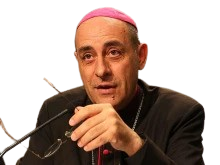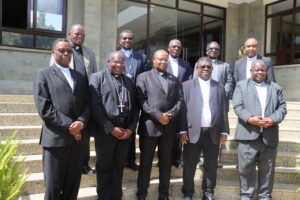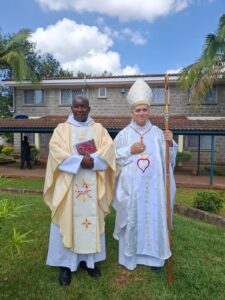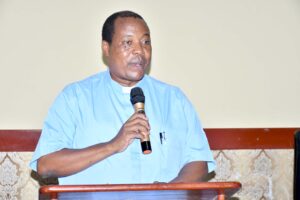Synod on Synodality: Diaconate Ordination of Women Calls for In-depth Study, Says Vatican Official

Víctor Cardinal Fernández
Sr. Jecinter Antoinette Okoth, FSSA
As discussions for the Second Session of the XVI Ordinary General Assembly of the Synod of Bishops continue in Rome, the prefect of the Vatican’s Dicastery for the Doctrine of the Faith reported that the concern about women’s ordination in the Catholic Church still requires thorough analysis.
While sharing the discussions so far since the study groups of experts were created early this year to reflect on ten thematic areas including the issue of women diaconate, Víctor Manuel Cardinal Fernández pointed out that “There is still no room for a positive decision,” on this concern.
“We would like to share from the outset that, based on the analysis conducted so far, which also takes into account the work done by the two commissions established by Pope Francis on the female diaconate, the dicastery judges that there is still no room for a positive decision by the magisterium regarding the access of women to the diaconate, understood as a degree of the Sacrament of Holy Orders,” The Argentinian Cardinal shared with synod delegates Wednesday, October 2, during a series of brief reports by working groups set up to study administrative and pastoral reforms.
He continued, “We know the public position of the Pope, who does not consider this question mature. There are other issues still to be deepened and resolved before rushing to speak of a possible diaconate for some women. . . Otherwise, the diaconate becomes a kind of consolation for some women, while the most decisive question of women’s participation in the Church remains unanswered.”
Early this year, Pope Francis created study groups of experts to reflect on ten thematic areas on issues raised from the first phase of the XVI Ordinary General Assembly of the Synod of Bishops, one of which was on ‘theological and canonical questions about specific ministerial forms,’ to strengthen the relationship between charisms and ministries from a missionary perspective which do not oppose each other.
Besides proposing practical ways, from a theological and canonical point of view, to promote and support the participation of all the baptized in the mission of the Church in different contexts, the group was also to reflect on the question of women’s possible access to the diaconate.
The study group for this concern was expected to be coordinated by the General Secretariat of the Synod in collaboration with the Dicastery for the Doctrine of the Faith and in dialogue with the various relevant Dicasteries.
In his message on the reflection of Diaconate of women taking a different perspective, the Vatican official highlighted that the experts will study the part played in history by women, including St Joan of Arc, St Catherine of Sienna, Maria Montessori, and Dorothy Day, who had “exercised genuine authority and power in support of the Church’s mission” in ways “not tied to sacramental consecration.”
This second phase of the synod has approximately 356 participants from across the globe comprising Cardinals, Bishops, clergy, Religious and lay faithful.


